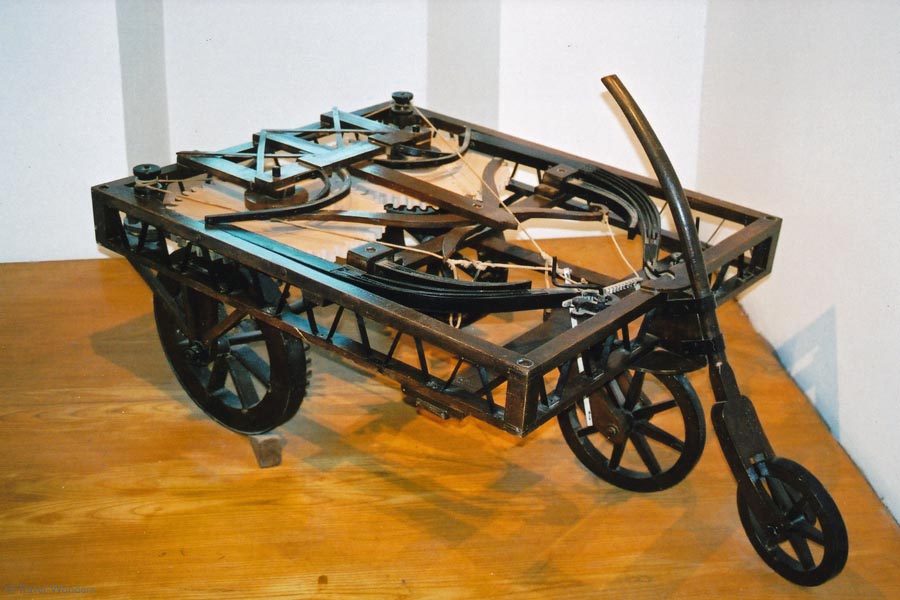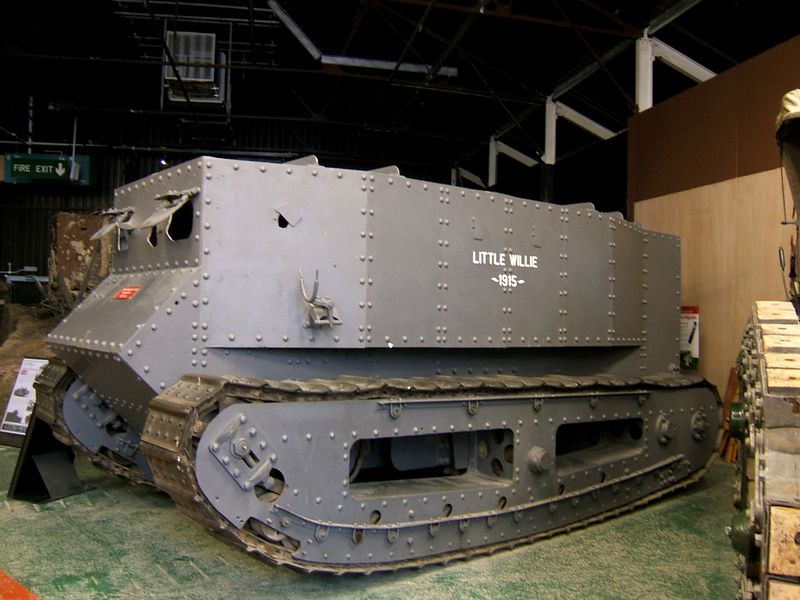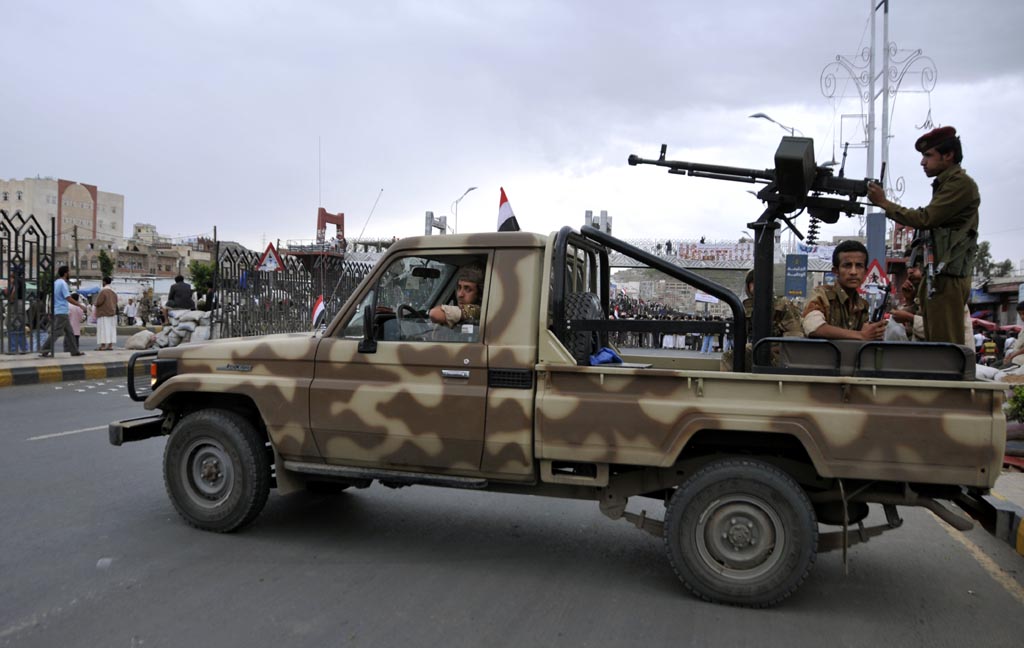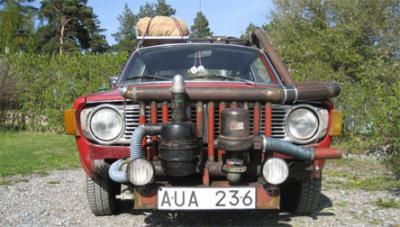Before I give you my details, I have one word for you, just one word...
Stability
It is impossible to reintnroduce manufacturing on a 20th or 21st century level without it. If your world is still burdened by semi-mechanized banditry, you're going to be out of luck, because they know as well as everyone else that the reintroduction of mechanized warfare numbers their days.
Having said that, all you need do is examine the chain of dependencies to realize what you need.
Electricity Nuclear, wind-farm, solar-farm, coal, hydroelectric.
Coal is likely the easiest to maintain (requires the least amount of specialized employees to fix anything), but it requires access to coal (railway, mining) and so has the highest dependency.
Solar farms are likely the easiest to get going and operate, and they require the least in terms of source material, but they'll be harder to defend (they cover more area than coal. A lot more area), and very difficult to maintain (second highest dependency on specialized labor).
Wind farms aren't worth it. Compared to everything else they break quickly and are easily broken. You need cranes to fix just about anything. Post-apoclypse, I'd leave these to the ruffians.
Hydroelectric means dams. There aren't very many of them, and once something about the turbines breaks you're very much out of luck. I'd ignore these, too.
Nuclear power is interesting. It has the highest dependency on specialized labor, but once it's running, it runs for years without refuling (the average plant refuels every two or so years, but that's at full operating capacity). I suspect that low refuel dependency would make them very, very desirable.
Communication Telegraph, 1970s/80s phones, VHF, cell phones.
The strength of telegraph is that it's simple, and post-apocalyptic, simple is good. The weaknesses of telegraph include (a) you need a set of wires between every pair of points that need a conversation (or you need to cache your conversations) and (b) only one conversation can be had on a set of wires at one time. That's a little limiting, but probably your best choice because, with a bit of patience and coordination, it would work. Of course, all those miles of undefended wire is, well... undefended.
Modern phones require fewer wire pairs to have all those conversations and, thanks to signal multiplexing, you can have as many people talking (basically) as you want. But, by comparison, they're infinitely more complex than telegraph, requiring specialized labor to maintain the service. They're more convenient, but there's still all that undefended wire....
VHF radio has the benefit of no wires and isn't all that complicated. It's probably the superior solution over relatively short distances (5-20 miles). The problem is line-of-sight, which radio depends heavily on. Sure, you can add signal repeaters, etc., but now you're adding specialized labor on top of specialized labor. Yuck. If everything's inside the same valley, this is your top choice.
Cell phones are out. You need cell towers and satellites and wealthy girls carrying toy dogs and a whole host of voodoo. It's actually quite impressive, the labor dependency we have for the luxury of our cell phones. I wouldn't even consider this. Unfortunately, the world is becoming less and less land-line-based. That means that, post-apocalypse, cell phones might be the only available solution... but the dependencies... they wouldn't stay running very long, and once they're gone, it's unlikely you'll get them back soon. You may need to string your own wire with telegraph, but at least it could be depended on (except for all those miles of undefended wire... sigh...). Of course, to string telegraph wires you need wire....
Raw Materials—Iron/Steel, rubber, brass/copper, diesel/gasoline (we're mechanized, right?).... This is almost the deal killer.
The problem with raw materials is that they're almost never where you need them. One might be here, but another is way up north, and another is on the other side of a difficult to defend bridge, and yet another is hundreds of miles away. Each facility requires electricity and communication, defense, plus all the tools they need to dig, extract, purify, and transport their production. Oh, did I say transport? Dang... this is getting messy...
Transportation trucks, big trucks, little trucks, and the cars that help people get to where the trucks are.... And that means fuel, and lubricants, and tires (lots and lots of tires), and more metal, and the ability to construct and maintain them. Which means we need wrenches....
Dependency Manufacturing
This is the real killer, and I apologize for the lengthy path to get to this point — but it's a path that had to be experienced. To run a factory (and all of its dependencies, which I've only touched on... and that should terrify you, by the way...), you need tools. Those tools come from somewhat simpler factories, which need tools, which come from (occasionally) somewhat simpler factories, which need tools. This is THE vicious circle when it comes to bringing any form of modern technology back to life. You need nuts & bolts, screwdrivers and wrenches, welding and die cutting, rolling and molding, and a whole lot more. I wouldn't be at all surprised to discover that the manufacture of a tank — even a simple tank like a Sherman — requires 30+ factores OTHER than the tank factory making all those other tools and parts. Remember, you also need trucks and conveyor belts, and mining drills, and gunpowder... somewhere somebody had better be making the gunpowder... Ugh.
And, of course, each of those factories requires access to raw materials, electricity, communication, transportation...
Now you have a city, and need much more than just what your tank needs
You need food distribution, waste disposal, utiltities, a judiciary, and recreation (if you don't want a riot on your hands), and (of course) government, police, fire, medical, and janitors... everybody always forgets the janitors....
Modern technology of any kind sits atop a pyramid of technological advancement and both social and manufacturing infrastracture. That pyramid is astonishingly massive in a way that makes the Apollo moon missions seem like a quick pop to the corner store for a burrito. Yes, you can do without some of that pyramid... but not all of it... or even most of it. If it were possible to "just build a tank" then people would be doing it in their garages for fun.
Which brings us back to stability
A political collapse means looting and vandalism, but most of the infrastructure is still more-or-less intact. You need the specialized labor, but that can be retrained with time. All you need is stability and you can get people back to work.
The question is, can you restabilize a city, plus the farming and mining areas it depends on, before the skills are injuriously lost or the machines, etc., begin to decay (rust stinks...)?
If the answer is yes, then the most viable path is the path to stability, which might require an army, which requires logistics and support, which requires manufacturing...
Oh, dear...





